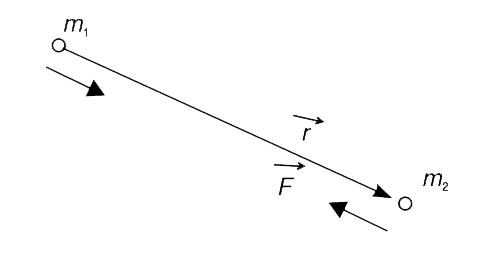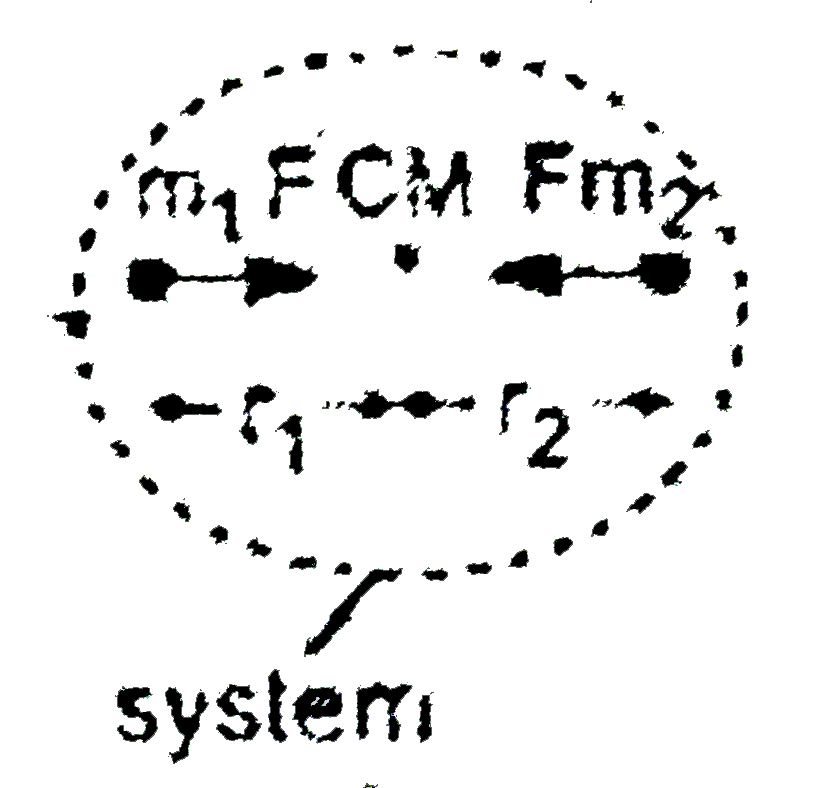Two particles of mass m1 and m2, approach each other due to their mutual gravitational attraction only. Then Solution in Marathi
acceleration of both the particles are equal.
acceleration of the particle of mass m, is proportional to m1.
acceleration of the particle of mass m, is proportional to m2.
acceleration of the particle of mass m, is inversely proportional to m1.
Step by step video & image solution for Two particles of mass m_(1) and m_(2), approach each other due to their mutual gravitational attraction only. Then by Physics experts to help you in doubts & scoring excellent marks in Class 11 exams.
Topper's Solved these Questions
Similar Questions
A body while sliding went straight down an incline of 45∘ to the horizontal and was subjected to a coefficient of kinetic friction of 0.20. Starting from rest, hwo long did it take him to reach a speed of 50km/hr? (Ignore air resistance and take h=10m/s2)
05:36View SolutionWhen a bus suddenly takes a turn, the passengers are thrown outwards because of
02:20View SolutionTwo particles of masses m_(1) and m_(2) initially at rest a infinite distance from each other, move under the action of mutual gravitational pull. Show that at any instant therir relative velocity of approach is sqrt(2G(m_(1)+m_(2))//R) where R is their separation at that instant.
03:34View SolutionTwo masses m_(1) and m_(2)(m_(1)ltm_(2)) are released from rest finite distance. They start under their mutual gravitational attraction-
02:40View SolutionTwo particles of mass m1andm2 are in space at separation →r [vector from m(1) to m2]. The only force that the two particles experience is the mutual gravitational pull. The force applied by m1onm2is→F. Prove that μd2→rdt2=→F where μm1m2m1+m2 is known as reduced mass for the two particle system .
 08:14View Solution
08:14View SolutionConsider a system of two particles of masses m1 and m2 separated by a distance r. Suppose they start to move towards each other due to their mutual attraction (attractive force may be electrical, gravitational, etc.).
 04:30View Solution
04:30View SolutionTwo particles m1 and m2 are initially at rest at infinite distance. Find their relative velocity of approach due to gravitational attraction when their separation is d.
03:34View SolutionTwo particles of mass m_(1) and m_(2) , approach each other due to their mutual gravitational attraction only. Then
03:08View SolutionTwo masses m1 and m2(m1<m2) are released from rest from a finite distance. They start under their mutual gravitational attraction
02:20View SolutionTwo particles of mass m_(1)andm_(2) , approach each other due to their mutual gravitational attraction only. Then:
05:22View SolutionTwo particles of mass m1andm2, approach each other due to their mutual gravitational attraction only. Then:
04:05View SolutionTwo particle of mass m_1 and m_2 approach each other due to their mutual gravitational attraction only. Then
01:29View SolutionTwo masses m_(1) and m_(2) are initially at rest at infinite distance. They approach each other due to gravitational attraction. What is the speed of approach at a distance r between them?
View SolutionTwo particles of mass m_(1) and m_(2) are approaching towards each other under their mutual gravitational field. If the speed of the particle is v, the speed of the center of mass of the system is equal to :
06:00View SolutionTwo particles of mass m_(1) and m_(2) (m_(1)gtm_(2)) attract each other with a force inversely proportional to the square of the distance between them. If the particles are initially held at rest and then released, the centre of mass will
View Solutionदो कण, जिसमे द्रव्यमान m1 तथा m2 है, परस्पर केवल गुरुत्वाकर्षण आकर्षण के कारन एक दुसरे के समीप है तब
04:08View Solution

